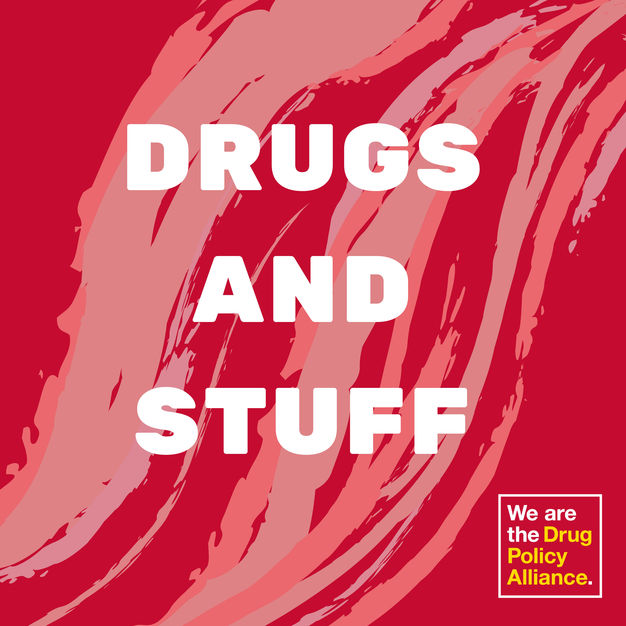
Drugs and Stuff: A Podcast about Drugs, Harm Reduction, Mass Incarceration, The Drug War and other Stuff, from the Drug Polic
Drug Policy Alliance
The Drug Policy Alliance (DPA) is the nation's leading organization working to end the war on drugs. We focus on legalizing marijuana; criminal justice reform and ending draconian prison sentences for drugs; harm reduction policies that prevent overdoses and save lives; and we educate the public about drugs while dispelling popular myths and misinformation. Our host, Tommy McDonald, has been on DPA’s media team for 12 years and worked in journalism and radio before coming to DPA, and he’ll be mostly joined by Derek Rosenfeld, who has run DPA’s social media since 2010. Follow on Twitter @drugsnstuffDPA
- 36 minutes 42 secondsEpisode 48: Classwide Scheduling of Fentanyl-Related Substances Won’t Save Lives - It Will Overcriminalize ThemUnder the Controlled Substances Act, drugs are classified into legal, regulatory categories by the Drug Enforcement Administration. This is known as “drug scheduling”, and it’s generally guided by a drug’s potential for abuse, and its medical value – and then the idea of classwide scheduling came along. In 2018, in a misaligned approach to addressing the overdose crisis, President Trump used classwide scheduling to classify all fentanyl-related substances (FRS) as Schedule I controlled substances. This means that any substance that was structurally similar enough to fentanyl became subject to harsh criminal penalties, regardless of its effects on the body. President Biden, despite apologizing for his tough-on-crime past and promising real criminal justice reform, is advocating to make this Trump-era decision permanent, and it's now up to Congress to decide. In February of 2022, the House voted to extend the policy yet again through March 11, and it’s unclear how long the extensions will continue – the longer they do, the more harm they bring. DPA’s Maritza Perez invited FRS expert and criminal defense attorney Patricia Richman to the podcast to explain more about what classwide scheduling means, and why we are fighting against it.
For more information on fentanyl and related substances, visit https://drugpolicy.org/drug-facts/synthetic-opioids-fentanyl.
Special thanks to DPA’s Communications intern Matthew Gonzalez for his help on this episode.
10 February 2022, 10:00 pm - 35 minutes 9 secondsEpisode 47: Maia Szalavitz Considers Harm Reduction’s Past and Future
The harm reduction movement began as a reaction against drug war policies that criminalize, punish, and hurt people – and a need to save lives. As a public health approach that aims to reduce the harms related to drug use and minimize risk, it offers a fresh and compassionate alternative to the war on drugs. In her new book, New York Times bestselling author Maia Szalavitz chronicles the fascinating and impactful history of this movement. DPA's Sheila Vakharia sat down with Maia to talk about her research, her book's timeliness, and where the movement can go from here, including the decriminalization and legal regulation of drugs.
You can keep up with Maia’s work at her website, maiasz.com. Her new book, Undoing Drugs: The Untold Story of Harm Reduction and the Future of Addiction, is available wherever books are sold.
20 September 2021, 4:00 pm - 32 minutes 53 secondsEpisode 46: The Brotherhood Sister Sol’s Dr. Marsha Jean-Charles on the Drug War and the Education System
The drug war has impacted nearly every aspect of our lives—and it’s time to uproot it. The Drug Policy Alliance has been working closely with other advocacy organizations to create Uprooting the Drug War, a project that shines a spotlight on the insidious ways the drug war has spread into the systems of child welfare, public benefits, employment, immigration, housing, and education. This episode is the third in our monthly podcast series featuring a DPA partner sharing their experiences fighting the drug war in one of those six systems. The Brotherhood Sister Sol’s Dr. Marsha Jean-Charles and DPA’s Gabriella Miyares discuss how the drug war has manifested itself into our education system, including but not limited to mass surveillance, poor drug education, and lasting yet ineffective punishments for drug use.
DPA is proud to partner with The Brotherhood SisterSol through our Advocacy Grants Program. To learn more about grants opportunities, visit drugpolicy.org/grants.
Special thanks to our intern Jake Samieske for his help on this episode.
21 July 2021, 12:30 pm - 15 minutes 7 secondsEpisode 45: “Puff or Pass”: The Iconic, Ironic D.A.R.E. Shirt
In this episode of “Puff or Pass”, our series on the portrayal of drugs and drug users in popular culture, DPA’s former digital communications interns Dilara Balkan and Marisa Hetzler take us on a journey through fashion, irony, and drug (mis)education with an exploration of the D.A.R.E. shirt. How did the infamous D.A.R.E. program transition from failed Copaganda “drug education” to a counterculture sartorial statement? Listen to find out -- and learn why D.A.R.E.’s abstinence-based approach to drug education was so unsuccessful, what alternatives exist, and where you can get yourself some D.A.R.E. merch to pull off the 90s alt-aesthetic you’ve always wanted.
To learn more about DPA’s harm-reduction based drug education curriculum Safety First, visit drugpolicy.org/safetyfirst.
Special thanks to our intern Jake Samieske for his help on this episode.
14 July 2021, 12:30 pm - 26 minutes 57 secondsEpisode 44: Screenwriter Priscila García-Jacquier on Challenging the Narcos Narrative
Have you ever noticed just how many series, films and documentaries focus on the drug trade? The “narcos” narrative is so popular, and so ingrained, that it’s universally known. It's also really problematic, and on this episode, we'll do some digging into why. Screenwriter and director Priscila García-Jacquier was born and raised in Colombia, whose economy, people, and reputation have been intimately affected by drugs. “For countries so shaped by the drug trade, whenever I read about it, it feels more like I'm doing 23andme than just like reading about history, you know?" Priscila connected with Jeannette Zanipatin, DPA’s California State Director, and Alexis Martin, DPA’s Development Manager, to talk about challenging the story we so often see, while also considering larger questions around cultural perspective, Latinx identity, and harmful stereotypes.
You can keep up with Priscila’s work at her website, priscilagarciajacquier.com, and on her Instagram @priscilagarciajacquier and Twitter @priscilagarciaj. Her show Blindspotting is currently airing on Starz.
30 June 2021, 12:30 pm - 42 minutes 35 secondsEpisode 43: The Ordinary People Society’s Pastor Kenneth Glasgow on the Drug War and the Public Benefits System
The drug war has impacted nearly every aspect of our lives—and it’s time to uproot it. The Drug Policy Alliance has been working closely with other advocacy organizations to create Uprooting the Drug War, a project that shines a spotlight on the insidious ways the drug war has spread into the systems of child welfare, public benefits, employment, immigration, housing, and education. This episode is the second in our monthly podcast series featuring a DPA partner sharing their experiences fighting the drug war in one of those six systems. The Ordinary People Society’s Pastor Kenneth Glasgow and DPA’s Gabriella Miyares discuss how the drug war and the poisonous mentality around it have kept people in poverty and unable to access crucial public benefits.
DPA is proud to partner with The Ordinary People Society through our Advocacy Grants Program. To learn more about grants opportunities, visit drugpolicy.org/grants.
19 May 2021, 12:30 pm - 37 minutes 3 secondsEpisode 42: Movement for Family Power’s Lisa Sangoi on the Drug War and the Family Regulation System
The drug war has impacted nearly every aspect of our lives—and it’s time to uproot it. The Drug Policy Alliance has been working closely with other advocacy organizations to create Uprooting the Drug War, a project that shines a spotlight on the insidious ways the drug war has spread into the systems of child welfare or family regulation, public benefits, employment, immigration, housing, and education. Today we kick off a new monthly series on Drugs & Stuff, with each episode featuring a DPA partner sharing their experiences fighting the drug war in one of those six systems. We begin with Movement for Family Power’s Co-Founder and Co-Director Lisa Sangoi and DPA’s Gabriella Miyares discussing the difficulties families face in the family regulation system, and what we can do to fight for family power.
DPA is proud to partner with Movement for Family Power through our Advocacy Grants Program. To learn more about grants opportunities, visit drugpolicy.org/grants.
To learn more about how the Family Regulation System became Ground Zero for the drug war, check out the Ground Zero Report, a collaboration among MFP, DPA, and the NYU Family Defense Clinic.
For more information on the resources Sangoi mentions in the episode, visit:
The Bronx Defenders—Family Defense Practice
National Council for Incarcerated and Formerly Incarcerated Women & Girls
Email [email protected] to get involved with the campaign to repeal the Adoption and Safe Families Act
Visit the Reimagine Support campaign page to learn more about the campaign to challenge unconsented drug testing of pregnant people, new parents and newborns and reporting to the family regulation system in NY State
Elizabeth Brico’s blog Betty’s Battleground
Dinah Ortiz, Vice Chair of North Carolina’s Survivor Union
Parent Legislative Action Network
Bobbie Butts and Vonya Quarles
Family Reunification, Equity, and Empowerment
Kelis Houston of the NAACP Minneapolis
Shattered Bonds: The Color of Child Welfare, book by Dorothy Roberts
14 April 2021, 12:30 pm - 42 minutes 30 secondsEpisode 41: Portland Commissioner Jo Ann Hardesty Talks All Drug Decriminalization and Alternatives to Policing
As we approach the one-year anniversary of Breonna Taylor's killing, the connection between deeply problematic policing and the criminalization of drugs has never been more apparent. On this episode, we take a deep dive into the changes that some communities are already making. Portland City Commissioner Jo Ann Hardesty sat down with DPA Senior Staff Attorney Grey Gardner to discuss the exciting new all drug decriminalization law in Oregon, Measure 110, as well as a community safety initiative in Portland that offers an alternative to policing. As a community leader and advocate for the last few decades, Commissioner Hardesty shares her observations on how the drug war impacts policing, and her thoughts on why a drastic change is needed.
For more information on DPA’s work around policing, visit drugpolicy.org/policing.
Special thanks to DPA’s Digital Communications intern Dilara Balkan for her help on this episode.
10 March 2021, 1:30 pm - 42 minutes 49 secondsEpisode 40: Christine Minhee on the Promises and Perils of Opioid Litigation
Today, news broke that the Department of Justice has reached an $8 billion-plus settlement with Purdue Pharma for its role in the opioid crisis. This money should be used to combat the public health emergency of overdose deaths, but another public health emergency -- the COVID-19 pandemic -- has taken hold of media coverage and government spending. As overdose deaths continue to increase, where will this money actually go? We sat down with Christine Minhee, an expert on opioid litigation and creator of the opioid settlement tracker: a project that asks, "Will opioid settlements actually be spent in ways that bolster the public health response to drug addiction?" She spoke with Mary Sylla, a senior staff attorney with DPA, about what opioid litigation is, why it’s so complex, how it ties into our current moment, and what her pie in the sky dream for a settlement would look like.
To see more of Christine’s work, visit opioidsettlementtracker.com. For more information on DPA’s work to prevent fatal overdose, visit drugpolicy.org/overdose.
21 October 2020, 12:30 pm - 42 minutes 3 secondsEpisode 39: After Her Son Overdosed and Died, Jessie Dunleavy Realized it Was Preventable
Jessie Dunleavy always knew her son Paul was unique. He struggled throughout his life -- to learn, to be accepted -- and she tried however she could to help him along the way. But as he got older, and began to struggle with drug use, system after system began to shut them out. Where he needed hope, he got silence; where he needed support, he got punishment. In April 2017, Paul overdosed and died. Devastated by his passing, Jessie began to learn as much as she could. In the process, she uncovered unknown details of her son’s life, glimpsed the depth of the injustices he was subjected to, and realized that his death had been preventable. In her new memoir, Cover My Dreams in Ink, she chronicles her journey from concerned mother to outspoken advocate.
Visit Jessie’s website for more information about her work and her book. To learn more about the Baltimore Harm Reduction Coalition and The Maryland Harm Reduction Action Network, visit baltimoreharmreduction.org and/or check out @BmoreHRC on Facebook, Instagram, and Twitter. For DPA’s work around overdose prevention, visit drugpolicy.org/overdose.
2 September 2020, 12:30 pm - 42 minutes 55 secondsEpisode 38: Keri Blakinger Reports on the Criminal Justice System That Once Held Her
Keri Blakinger has worked for years as a journalist (currently at The Marshall Project) covering the criminal justice system and exposing the abuses within it. She comes with experience that most reporters don’t -- in 2010, she was arrested for drug possession and spent two years in the system herself. Matt Sutton, DPA's Director of Media Relations, who also has first-hand experience of the system due to a drug charge, sat down to talk with her. In their discussion, they reflect on the obstacles they have faced in their lives as a result of having a record, how it affects Keri’s reporting, and what changes are needed in a system that still prioritizes punitive measures over anything else.
You can follow Keri @keribla on Twitter. To learn more about DPA’s work on these issues, visit drugpolicy.org/criminaljustice.
19 August 2020, 12:30 pm - More Episodes? Get the App
Your feedback is valuable to us. Should you encounter any bugs, glitches, lack of functionality or other problems, please email us on [email protected] or join Moon.FM Telegram Group where you can talk directly to the dev team who are happy to answer any queries.
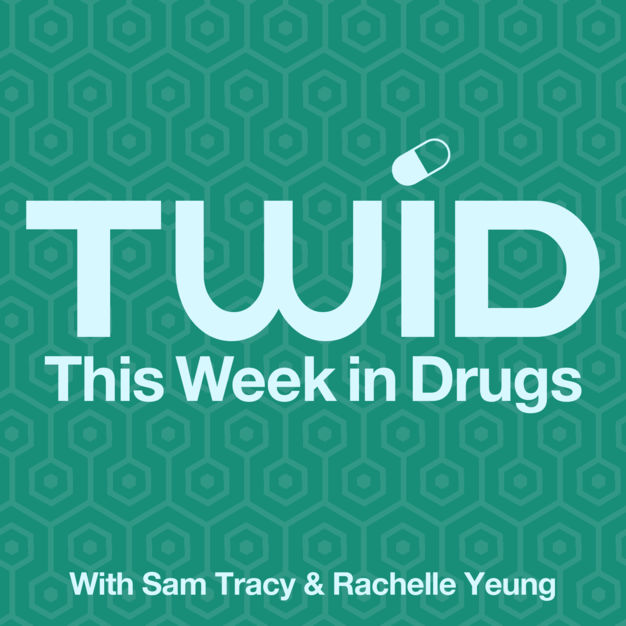 This Week in Drugs
This Week in Drugs
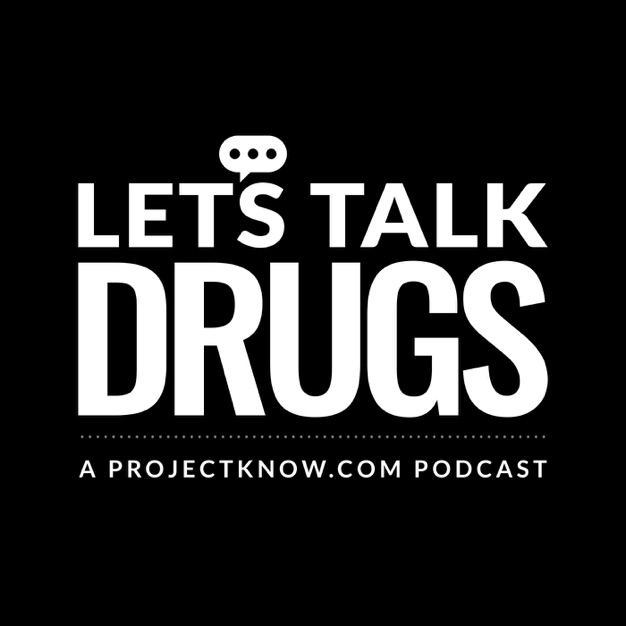 Let's Talk Drugs
Let's Talk Drugs
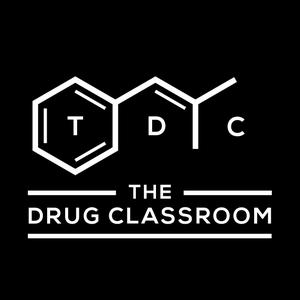 The Drug Classroom
The Drug Classroom
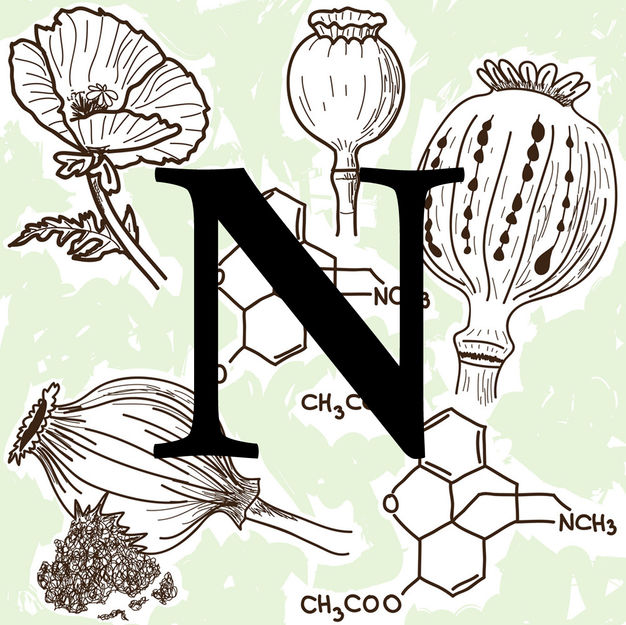 Narcotica Podcast
Narcotica Podcast
 Harm Reduction Coalition's Podcast
Harm Reduction Coalition's Podcast
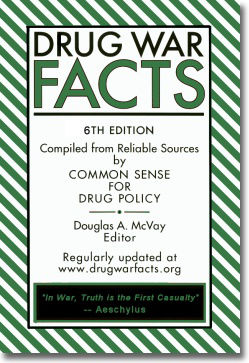 Drug Policy Facts
Drug Policy Facts